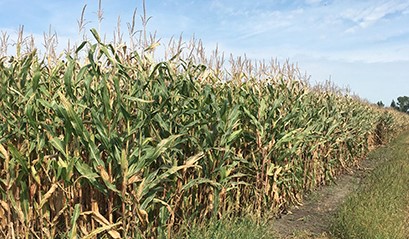About 1 per cent of the total corn acreage has been planted
By Diego Flammini
Assistant Editor, North American Content
Farms.com
OMAFRA’s field crop team released its field crop report for April 18 to give producers and early update on corn, soybeans and wheat.
When it comes to winter wheat across Ontario, the crop “looks excellent” and has “excellent yield potential,” according to the report.
But the crop’s success also means farmers should be scouting for diseases.
“(The) lush growth will increase the risk of foliar leaf diseases like powdery mildew and Septoria, especially in susceptible varieties,” the team said in its report. “Regular scouting will detect an early infection and allow for effective management.”
With respect to corn, only about 1 per cent of the total acreage has been planted and it was done more as a feeling out process.

“Most of the (corn) planting that occurred was to test out planting equipment or for test plots,” OMAFRA said. Farmers should keep their corn crop weed-free from emergence until the six-leaf stage to minimize yield losses.
For soybeans, planting date is a critical factor for yield potential.
“The highest yields of soybeans are obtained from early plantings, generally the first 10 days of May,” the report said. “Soybeans are more sensitive to soil temperature than corn, (but) if soil temperature and moisture conditions are suitable for planting corn, they are generally also suitable for soybeans.”
Applying a pre-plant burndown can help control many winter annual and perennial weeds. This herbicide application will also provide farmers with a clean seedbed for no-till and minimum-till operations, OMAFRA suggests.
To minimize yield losses from weed competition, the soybean crop should be kept weed-free from emergence to the second trifoliate stage, the report said.